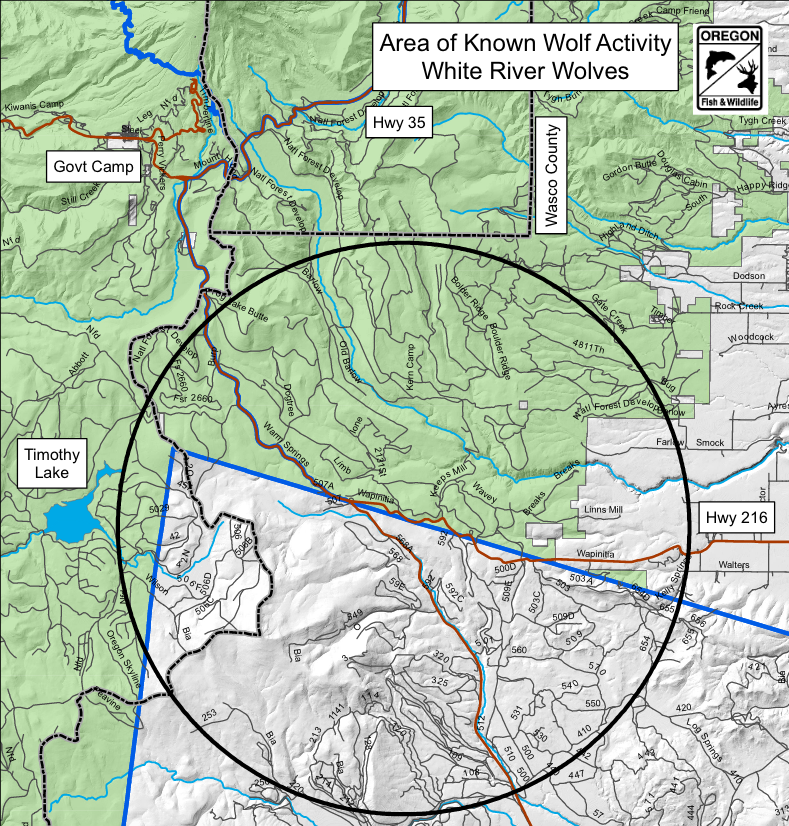Before we wade into a discussion of the beautiful, powerful creatures known as pumas or mountain lions or cougars, we should first acknowledge that it would be absolutely terrifying to be stalked and mauled by a wild cat that large, powerful, and quick.
As you’ve probably heard by now, a cougar attacked and killed a 55-year-old woman named Diana Bober in late August of 2018 in Mt. Hood National Forest. Wildlife agency officials are debating whether to kill more cougars, given that this was the second cougar-caused death in Pacific Northwest hiking areas in 2018 after a similarly frightening event in Washington State involving mountain bikers.
Opinions are mixed within the Mount Hood community. Many people live and recreate on Mount Hood to be near nature, and they love the idea of wilderness. But an ambush predator with a devastating neck-bite for its first move? That might be a little too wild. Especially for folks with kids and pets to care for.
Some Context
The picture becomes more nuanced when you consider the dominance of one species – ours – on a stunningly diverse planet teeming with life in all its diversity. The global human population has reached 7.5 billion people. Warnings of human-caused climate chaos are widespread. The situation has grown so precarious that scientific consensus is emerging that we live in the geologic age called the Anthropocene, an era in which humans have wrought permanent, profound, and irreversible changes to the natural world. All of which makes wilderness all the more precious to those of us who love to get out into nature and explore it. Cougar populations are a fraction of what they used to be before Europeans migrated into Oregon. The same is the case with bears, wolves, beavers, and so many other wild animals who live in the Northwest. A glimpse of a wild predator in its natural environment is a thrill that is increasingly hard to enjoy.
Before we sign onto any revenge expeditions to go wipe out the few wily cougars who have managed to survive the Anthropocene, we should keep in mind that there has been exactly one death by cougar attack in Oregon’s history. We should also consider the scientific evidence that killing dominant predators does not reduce the threat of human and livestock attacks but may actually increase the danger, due to a sudden instability in the predator hierarchy that can lead to new power struggles and increased violence. This is the case for both cougars and wolves (who also have been returning to Mount Hood after being hunted out of the Northwest in the mid-20th centruy.
Primal instincts run deep
As for me, I have never before seen a mountain lion in the wild, but I would love to. I have encountered grizzly bears in Alaska and crocodiles in Africa (both times while bicycling, and both times too close for comfort), and I can tell you that in those moments, yes, I was terrified, and yes, I was absolutely alive and connected to my surroundings in a profound way that I can recall with acute clarity decades later. I have no doubt that running into a mountain lion on Mount Hood would be equally thrilling. Would I feel the same way if I were hiking with my family? Probably not. I would probably be wishing I had a gun in my hand, or a very large club. Primal instincts run deep. The fear of being stalked, mauled, and eaten is imprinted in our DNA, and it can be powerful enough to overwhelm rational thoughts of probability and context. For most people, any chance at all of being attacked by a predator is probably too great a risk.
But isn’t that one of the reasons we venture out into nature? To immerse ourselves in a world not dominated and controlled by humanity? To be reminded that we too are animals, we too have natural instincts?
I feel absolutely awful for the friends and family of Diana Bober. But I believe strongly that declaring a one-sided war on the few wild species who have managed to survive the effects of the Anthropocene would be a sad and misguided strategy. Let the mountain lions and wolves be. They are the least of humanity’s problems in my view.
What do you think?
Last modified: February 26, 2025


